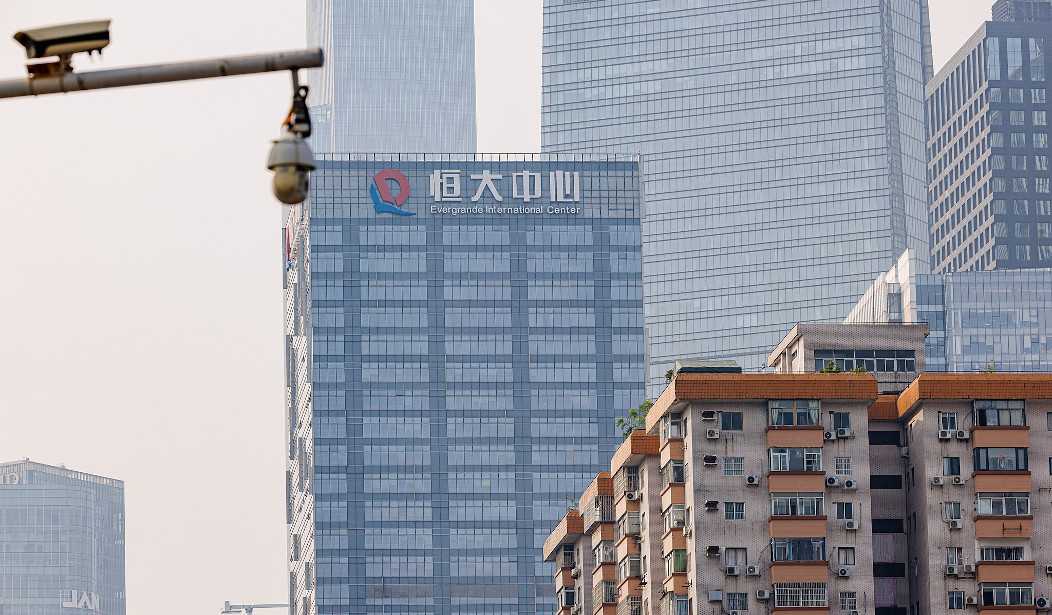Evergrande Group, the Chinese conglomerate focused on real estate development, has been ordered liquidated by a Hong Kong bankruptcy judge. Once the world's most valuable property development company, the judge determined that Evergrande's $240 billion in assets were dwarfed by over $300 billion in debt the company couldn't restructure.
BACKGROUND: Will the Bankruptcy of China's Evergrande Group Set off a Chain Reaction to Financial Armageddon?
Evergrande is just the latest in a cascade of Chinese real estate development companies to collapse since the government cracked down on their ability to borrow money.
In this case, it looks like everyone thought Evergrande was "too big to fail." Using the old adage, "If you owe the bank $100, that's your problem. If you owe the bank $100 million, that's the bank's problem," as a business model, Evergrande made no effort to restructure its debt, and its laissez-faire attitude led to a speculative bubble in Evergrande commercial paper as many saw that as an indicator that the fix was in. Evergrande's debt was going for two cents on the dollar this morning before trading was halted.
Evergrande's founder, Hui Ka-yan, was arrested in September. Executive Director Liu Yongzhou was arrested earlier this month for unspecified crimes, but never fear, "Show me the man, and I'll show you the crime." Don't be surprised if one or both of them are executed for financial crimes.
To a certain extent, this is symbolic as Evergrande will continue to stagger along, zombie-like, for years.
While Hong Kong’s courts have issued at least three wind-up orders for other Chinese developers since the crisis began in 2021, none comes close to Evergrande in complexity, asset size, and the number of stakeholders. There are also few signs that the liquidation of smaller peers Jiayuan International Group and Yango Justice International Ltd., a unit of Yango Group Co., are moving forward much.
Hong Kong’s insolvency proceedings have limited recognition in China, whose courts may also appoint administrators in their own jurisdictions. That leaves open the question of claims available for holders of $17 billion in Evergrande dollar bonds covered in its proposed restructuring plan.
The government has to engineer a soft landing for the real estate boom, which has given the average Chinese a sense of prosperity or the possibility of prosperity.
A building boom caused by access to easy money on easy terms led to a boom in building, which created jobs and wealth. Over a quarter of Chinese economic activity is related to real estate development.
Chinese consumers are spending less, in part because a slump in housing prices has affected their savings, much of which are tied up in property. Jobs tied to housing that were once abundant — construction, landscaping, painting — are disappearing. And the uncertainty of how far the crisis might spread is leaving companies and small businesses afraid to spend.
Local governments, which rely on land sales to developers to pay for municipal programs, are cutting back on services.
Financial institutions known as trust companies, which invest billions of dollars on behalf of companies and rich individuals, are staring at losses from risky loans handed out to real estate firms, prompting protest from angry investors.
It will be interesting to see how the collapse of China's real estate development industry plays out. Will China be able to stop it? Or will it turn into a new kind of "Wu-flu" for the world's economies? The silver lining in the cloud is that this should be a warning to private investors that sending their money to China is stupid and to Western governments that we can't decouple from China too fast.













Join the conversation as a VIP Member